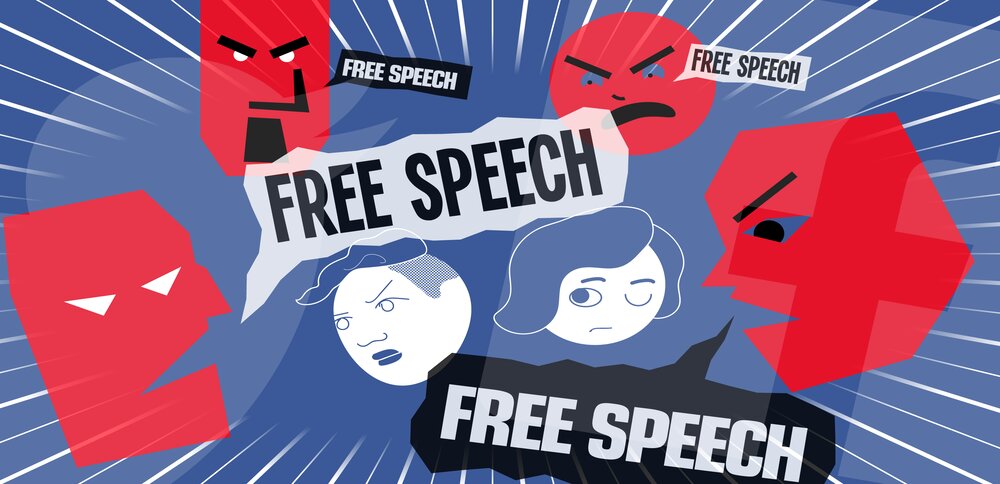There are people — not only in the U.S., but also in Canada, in Germany, and in many other countries — who use the free speech argument to spread false and dangerous notions with the goal of eliminating free speech.
In 1919, the U.S. courts ruled that shouting “fire” in a movie theater with people inside was not protected by free speech. The ruling is still valid, but concerns only an “immediate danger,” and is therefore only applicable to threats made in person — not online.
TV and radio stations in many parts of the world have mostly been careful and have avoided running dangerously false statements in order to protect their licenses. Similarly, print media has (mostly) avoided giving space to toxic behavior or inciting hatred in order to protect the reputation of print media (and its finances, as those in power don’t wish to be sued for libel or risk losing advertising support).
With the advent of Social Media, the line between creating an immediate danger by shouting “fire” and getting away with it became blurred because hate speech, falsehoods, threats, harassment, and disinformation took different routes, and were/are often untraceable.
Enter a new German law that now punishes dangerous and/or hate speech. Plus, there’s the fact that the U.S. is finally creating a precedent by taking legal measures against conspiracy theorist Alex Jones, who spread the false notion that the 2012 Sandy Hook school massacre was a hoax, on the grounds that he caused emotional distress to the parents and relatives of the 20 students who were killed by a man using a semi-automatic rifle. The gun-maker, Remington, has already paid a $73 million settlement to the families.
In Germany, hate speech, deliberate falsehoods, programmed disinformation, and inflammatory statements are punishable by fines, and even arrests. The argument the authorities have put forward is that by punishing toxic behavior, they are protecting freedom of expression, and as a New York Times article put it, “providing a space where people can share opinions without fear of being attacked or abused.”
There is also a notion that the right of free speech can only be trampled upon and censored by the government, not by individuals, which is indeed the case with the German law, as well as the aforementioned U.S. precedent.
In 2017, Germany passed a law requiring Social Media outlets to take down hate speech, and now the authorities are going after the toxic people as well. And using the argument that a defendant did not know that a statement was false won’t hold up because the accused bears the risk of spreading a false quote without first checking to make sure it’s accurate/true.










Leave A Comment